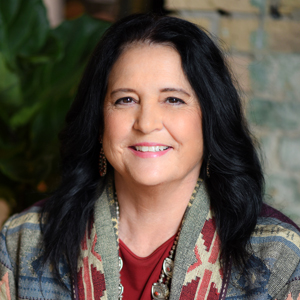
Assistant Professor Linda Bane Frizzell has been named to the U.S. Department of Health & Human Services’ Advisory Committee on Minority Health. The committee guides the department in developing goals and activities that benefit minority populations, including disease prevention, health promotion and education, service access and delivery, disparity reduction, and research.
“This is really quite an honor,” says Frizzell, who is a top national expert in American Indian health research, practice, and policy. “I’m looking forward to advising the committee on drafting comprehensive policy and legislation to ensure that American Indians and Alaskan Natives, as well as tribal governments, have opportunities to participate in the various programs run by the Department of Health and Human Services.”
Frizzell is particularly interested in uniformly expanding the legal parameters and rules for applying to HHS programs to be inclusive of tribal governments and their official government-to-government status in order to improve health and wellness equity of American Indians and Alaska Natives.
“Many of the requests for proposals negate the participation of American Indian and Alaska Native communities through rules that, for example, require them to have a 11-person governing board, or work through a subordinate of the federal government, such as a state,” says Frizzell. “On the reservation where I live, we have five people on the Tribal Council, so we wouldn’t be eligible to apply for those grants.”
Frizzell points out that accessing funding “through” a state is more expensive for tribes because the extra layer of bureaucracy forces them to spend money on added administrative functions — money that could be spent on direct health services. Such state-centric funding structures also often require tribes to advocate for their citizen’s portion of dollars allocated through minimally provisioned federal block grants and public health funding.
Additionally, some funding opportunities negate tribal eligibility, require insurmountable fund matching requirements, and often call for programmatic best practices that are not culturally appropriate. Frizzell says that it is imperative that all grant application eligibility criteria and requirements allow for the participation of tribes to ensure that they have choices in applying for funding opportunities that address their population’s specific needs.
With the upcoming change in the White House Administration, Frizzell finds further reason to be excited about working with the federal government. In the United States, each President has to issue an executive order that requires federal agencies to work in a meaningful, consultative way with the federally recognized tribes. “I’m optimistic about a lot of the things I see happening and President-elect Trump has the opportunity to do some real good,” says Frizzell.
Frizzell’s term with the Advisory Committee on Minority Health begins immediately and lasts into 2020.
